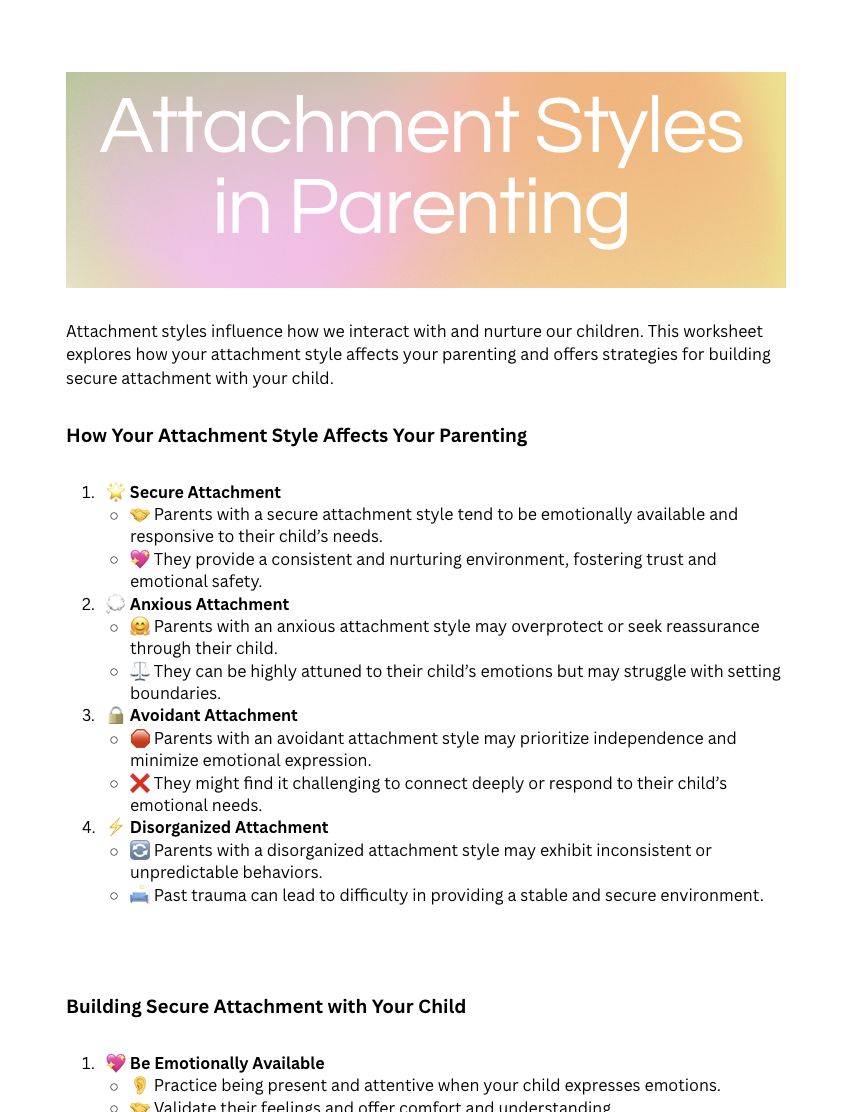 Image 1 of
Image 1 of

Attachment Styles in Parenting
Attachment style significantly influences parenting. Early experiences shape interactions with children and their emotional needs. Securely attached individuals create nurturing environments that promote resilience, while those with anxious attachment may struggle with consistency, risking over-involvement or anxiety. Avoidantly attached parents might emotionally distance themselves, neglecting their child's needs. Recognizing your attachment style can reveal patterns in your parenting, allowing for changes that foster healthier dynamics and support your child's emotional well-being and secure attachment development.
Attachment style significantly influences parenting. Early experiences shape interactions with children and their emotional needs. Securely attached individuals create nurturing environments that promote resilience, while those with anxious attachment may struggle with consistency, risking over-involvement or anxiety. Avoidantly attached parents might emotionally distance themselves, neglecting their child's needs. Recognizing your attachment style can reveal patterns in your parenting, allowing for changes that foster healthier dynamics and support your child's emotional well-being and secure attachment development.
Attachment style significantly influences parenting. Early experiences shape interactions with children and their emotional needs. Securely attached individuals create nurturing environments that promote resilience, while those with anxious attachment may struggle with consistency, risking over-involvement or anxiety. Avoidantly attached parents might emotionally distance themselves, neglecting their child's needs. Recognizing your attachment style can reveal patterns in your parenting, allowing for changes that foster healthier dynamics and support your child's emotional well-being and secure attachment development.
